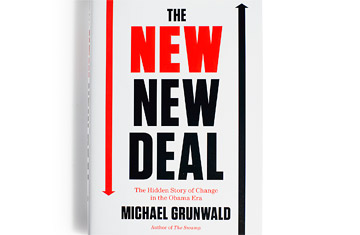
(2 of 4)
The owlish, studiously bland Senate minority leader from Kentucky was the unlikeliest of motivational speakers. He was a strategy guy, cynical and clinical; he reminded his members to stay calm, stay on message and stay united. Obama had promised postpartisanship, and Republicans could turn him into a promise breaker by withholding their support. "We got shellacked, but don't forget we still represent half the population," McConnell said. "Republicans need to stick together as a team." Or as Ohio Senator George Voinovich summarized the strategy: "If Obama was for it, we had to be against it."
The first major Obama initiative would be his stimulus plan, an $800 billion package of tax cuts and spending programs designed to resuscitate an economy that was hemorrhaging 800,000 jobs a month. Who could oppose a jobs bill during a jobs crisis? Every presidential candidate had proposed a stimulus during the 2008 campaign. Romney's plan was actually the biggest.
But McConnell believed Republicans had nothing to gain from me-too-ism. He reminded his caucus that Republicans wouldn't pay a price for opposing Obama's plan if it succeeded, because politicians get re-elected in good times. But if the economy didn't revive, they could return from the political wilderness in 2010. "He wanted everyone to hold the fort," Voinovich later explained. "All he cared about was making sure Obama could never have a clean victory."
The Republican strategy on the stimulus was as simple as it was clever. The Obama plan had $300 billion worth of tax cuts, plus all kinds of spending that had enjoyed some bipartisan support: unemployment benefits, infrastructure, research and much more. It even included the Race to the Top education reforms, anathema to Democratic teachers' unions. But the GOP message never wavered: Big Government, big spending, big mess.
Inside the leadership team, though, there were tensions between Cantor, who wanted to put Republican politics first, and GOP conference chairman Mike Pence of Indiana, who wanted to put ideological conservatism first. Ultimately, the Republicans fell off both sides of the horse. The official $478 billion GOP alternative was a Pence-style ideological bill, consisting entirely of tax cuts and unemployment benefits. But Republicans also crafted a Cantor-style political bill, a $715 billion substitute with even more traditional infrastructure than the Democratic bill. Most House Republicans--including Ryan--voted for both. They never did explain how their stimulus could be good public policy while Obama's similar $787 billion stimulus was freedom-crushing socialism, but their no vote was unanimous. "The caucus had decided we weren't going to give Obama a bipartisan victory on this," recalls moderate Republican Mike Castle of Delaware.
But three moderate GOP Senators voted yes, so Obama won a huge policy victory, a down payment on his campaign promises to reform energy, health care, education and the economy. And one of those moderate Republicans, Arlen Specter, faced such a backlash that he defected to the Democrats, giving Obama the filibuster-proof majority he needed to pass his health reforms.
